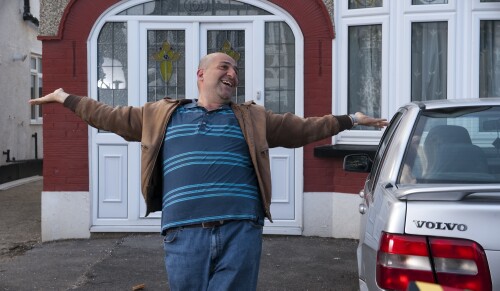(2020) Sports Documentary (1091) Tommie Smith, John Carlos, Ralph Boston, Mel Pender, Francoise Hamlin, Patty Van Wolvelaere, Brian Meeks, Dr. Harry Edwards, Selma Roberts, Richard Lapchick, Tom Farrell, Craig Masback, Paul Hoffman, Steve Livingston, Edwin Roberts, Larry Questad, Michelle Sikes. Directed by Tom Ratcliffe and Becky Paige
We are all aware of the brouhaha that Colin Kaepernick found himself in when he chose to take a knee during the national anthem at NFL games to protest violence against people of color as well as racial inequality. However, that wasn’t the first time a single gesture at a sporting event polarized the country.
At the 1968 Summer Olympics at Mexico City, just such an event occurred. It had been a violent summer, with civil rights leader Dr. Martin Luther King assassinated as well as Presidential candidate Robert Kennedy. Protests against the Vietnam War were in full swing. Throughout the summer, black athletes, organized by San Jose State’s Dr. Harry Edwards, discussed boycotting the games altogether in protest of racial injustice, but at the end of the day were persuaded to participate.
In the 200 meter dash, American Tommie Smith was heavily favored to win. He was one of those who considered boycotting the Games, although in addition to feeling left out of his own country’s privileges, he also took great pride in being an American. Despite pulling a groin muscle in the semifinals, he managed to win the 200, setting a world record in the process. Fellow American John Carlos, both athletes at San Jose State at one time, finished third, just .04 seconds behind white Australian Peter Norman.
On the victory stand, both athletes were shoeless, wearing black socks only. Carlos wore a necklace of beads in honor of the black Americans who had been lynched over the years. Both men stood during the playing of the National Anthem with fists upraised, heads bowed, each wearing a single black glove. Both athletes heard boos cascading through the stadium as they exited the ceremony.
Reaction was swift and negative. International Olympic Committee president Avery Brundage – who had not protested the Nazi salute at the 1936 Berlin games – wanted both men expelled from the Games. When the United States Olympic Committee refused, he threatened to expel the entire team. Both men were forced to leave the Olympic village and returned home to vitriol and death threats.
In the years since, their actions have been seen as acts of courage and of conscience, as well they should. The men are rightly considered heroes for taking a stand against injustice. This documentary, just a hair over an hour long, chronicles the events leading to that moment that is indelible in Olympic lore, with the genesis of the boycott and protests, the formation of Edwards’ Olympic Project for Human Rights which promoted the boycott, the contributions of the all-white Harvard rowing crew team who supported the boycott, and the aftermath of those actions. While there is an abundance of talking heads in the film, it does put together the events well and provides context. In particular, Smith and Edwards both prove to be compelling subjects – in fact, nearly all the interview subjects are, but those two truly stand out.
Given the backlash against Kaepernick and those athletes who continue to kneel at the Star-Spangled Banner today, the timeliness of this story is obvious. The fact that many of the same issues that Smith and Carlos protested in 1968 were still issues in 2018 is a sad testament to the institutional racism that continues to dominate the experience of Americans of color despite protestations to the contrary.This should be required viewing for all high school students.
REASONS TO SEE: Well laid-out.
REASONS TO AVOID: A plethora of talking heads.
FAMILY VALUES: There are some depictions of racial violence.
TRIVIAL PURSUIT: Smith and Carlos were both pallbearers at the funeral of Peter Norman, the Australian silver medalist on the stand with them that day, in 2006.
BEYOND THE THEATERS: Amazon, Fandango Now, Google Play, Microsoft, Vudu, YouTube
CRITICAL MASS: As of 8/24/20: Rotten Tomatoes: No score yet, Metacritic: No score yet
COMPARISON SHOPPING: Salute
FINAL RATING: 7.5/10
NEXT: Valentina



